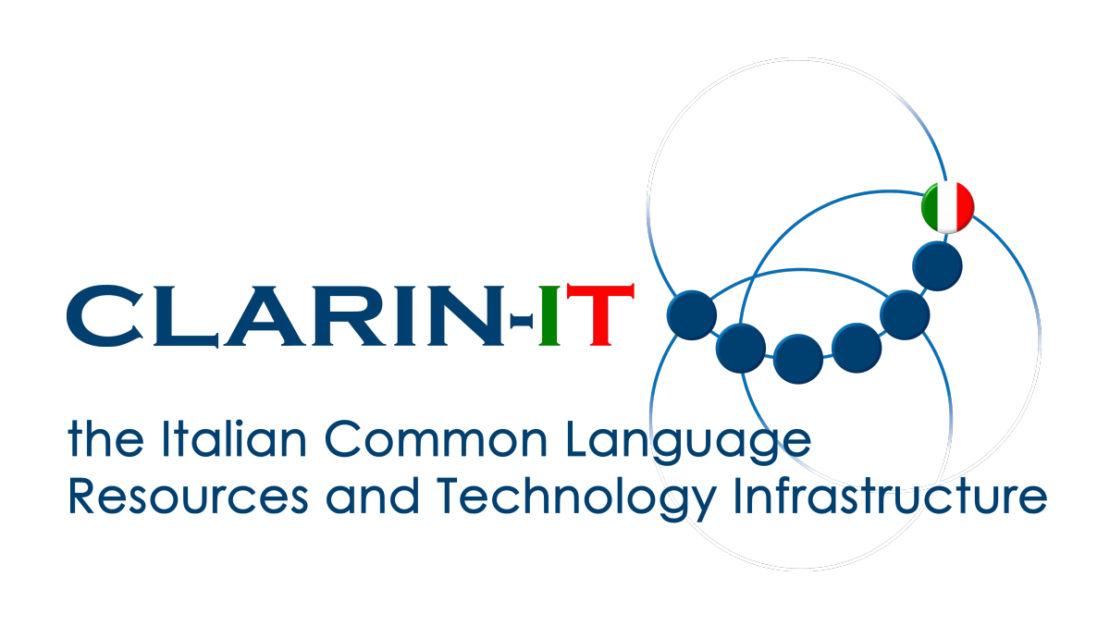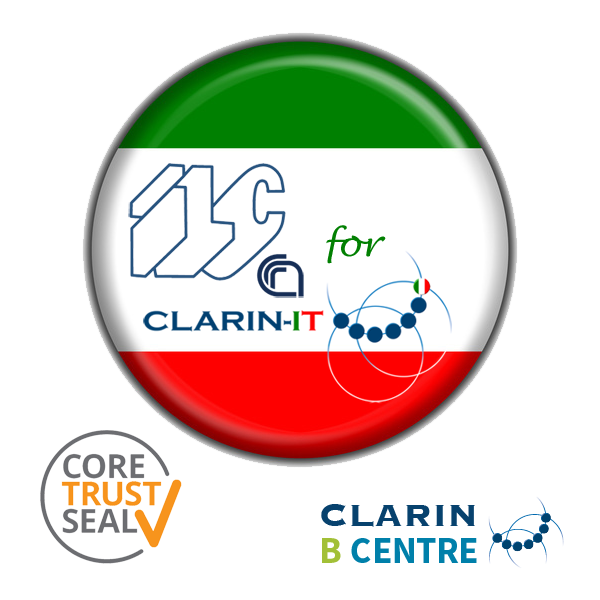CLARIN-IT – the Italian Common Language Resources and Technology Infrastructure
Italy participates in CLARIN ERIC through the CLARIN-IT National Consortium.
CLARIN-IT is the Italian node of CLARIN (Common Language Resources and Technology Infrastructure), a European Research Infrastructure Consortium (ERIC) that makes digital language resources available to scholars and researchers of all disciplines, in particular of the Social Sciences and Humanities.
CLARIN ERIC is one of the 20 European Research Infrastructure Consortia in which Italy takes part thanks to the investment of the Italian Ministry of Universities and Research (MUR) through the Ordinary Fund for Public Research Bodies (FOE), initially allocated on an extraordinary basis and, in recent years, structured on a stable basis through the financing item “progetti a valenza internazionale”.
Executing institution: Cnr-Istituto di Linguistica Computazionale “Antonio Zampolli”
CLARIN-IT National Coordinator: Monica Monachini
Member of the Board of Directors of CLARIN ERIC: Francesca Frontini (2021-2024)
CLARIN-IT’s activities are conducted according to the FAIR (Findable, Accessible, Interoperable, Reusable) principles, which form the basis for the use, sharing and reuse of research data, in line with the Open Science paradigm.
CLARIN explained in 3 minutes (video)
ILC4CLARIN
ILC4CLARIN is officially recognised as a CLARIN Service Delivery Centre (Type B) and is Core Trust Seal certified. The Centre provides language services and a repository for storage and preservation of data from the Social Sciences and Humanities (SSH) community.
Contacts: coordination@clarin-it.it
DiPText-KC
DiPText-KC is a CLARIN Knowledge Centre for Digital and Public Textual Scholarship (Type K) of CLARIN-IT.
Contacts: diptext-kc@clarin-it.it
H2IOSC
Humanities and Heritage Italian Open Science Cloud
Language Technologies, Digital Humanities and the Cultural Heritage sector collaborate in data- and computation-intensive research.
The Cnr-Istituto di Linguistica Computazionale “Antonio Zampolli”, thanks to the PNRR (National Recovery and Resilience Plan) – Research Infrastructures funds, will contribute to the creation of H2IOSC, a federated and inclusive cluster of Research Infrastructures (RI) for Open Science, in the ESFRI Social & Cultural Innovation (S&CI) domain.
H2IOSC will support the implementation of a strategy for the integration of RI in Italy, optimising the use of the most relevant assets, upgrading and implementing structures, according to the needs emerging from the Social Sciences and Humanities and Cultural Heritage communities.
H2IOSC will bring together the following research infrastructures:






